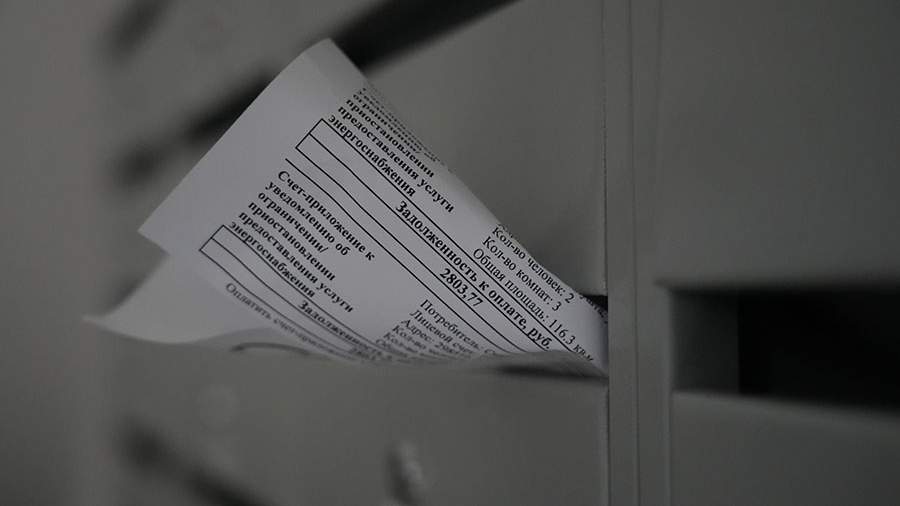The lawyer listed ways to write off debts for housing and communal services

It is possible to initiate debt cancellation for housing and communal services due to the bankruptcy procedure, provided that the debt exceeds 500 thousand rubles, and the debtor's income does not ensure the possibility of its timely repayment within three months. Lawyer Alexey Panfilov, the head of Panfilov and Partners, told Izvestia about this on April 30.
"It is important to understand that this amount implies accumulated obligations not only for housing and communal services, but also for other loans," he said.
Speaking about the advantages of this method, he noted that when bankruptcy proceedings are opened, the debt is frozen and its amount no longer increases. At the same time, the impossibility of executing a court decision in the case of debt payment will not entail criminal or administrative punishment. However, if the debtor's property is the only dwelling, it will not be withdrawn.
Among the disadvantages is the inability to use further lending services. The debtor will receive refusals from banks or be offered the most unacceptable conditions. Another disadvantage is the lack of opportunity to run your own business.
"Bankruptcy provides an opportunity to legally get rid of debts, but in order to initiate the procedure, there must be a good reason: dismissal, family tragedy, illness, death of loved ones. If the debtor has property and funds that allow him to settle payments, then he will still have to pay. In this case, there is no reason for bankruptcy," the expert explained.
At the same time, according to the lawyer, Article 195 of the Civil Code of the Russian Federation states that it is possible to collect arrears for non-payment for housing and communal services for the full 36 months. Consequently, if the debt burden has accumulated over five years, then during the trial the debtor will be billed for only three years. In this case, it is precisely the situation when a citizen does not recognize debts that is taken into account: he has not received any written applications for deferred payment.
"At the same time, in order not to repay the debt for the entire five—year period, a citizen should definitely file a petition, notifying the court of the missed limitation period," Panfilov added.
If the debtor's only source of income is a pension or any other benefits from the state, then the out—of-court bankruptcy procedure can be carried out, the expert said. To do this, it is worth visiting the MFC. However, such a write-off is possible if there are no existing enforcement proceedings against a Russian citizen. The minimum debit amount is 25 thousand rubles, and the maximum is 1 million rubles. In his appeal, the debtor should indicate all loans, as well as tax arrears, fines, and alimony. If he forgets to mention something, then this debt will still remain with him.
"It follows from judicial practice that debts that were incurred for housing and communal services by analogy with the law of art. 266 of the Tax Code of the Russian Federation (Tax Code of the Russian Federation. — Ed.) can be considered hopeless for recovery," the lawyer said.
In addition, he explained that the debt on utility bills is assigned to a separate property, therefore, upon the death of a person, his relatives should notify the utility organization to suspend charges. In the future, the debt will be borne by the heirs. This can be avoided by not inheriting.
"The debt can be placed on the shoulders of the state. This is possible if there are no heirs. Real estate acquires the status of extortionate. In this case, the municipal authorities are responsible for it," concluded Panfilov.
Earlier, on April 22, Andrey Fradkin, a lawyer and expert on urban infrastructure and housing and communal services, told Izvestia that one of the ways to save on housing and communal services could be to eliminate unnecessary options. According to him, residents can turn off the radio — they are still found in old Soviet-built houses. As a rule, no one uses them, even elderly citizens. But the bill still comes every month, even if the radio was hidden by a false wall during the repair.
Переведено сервисом «Яндекс Переводчик»

